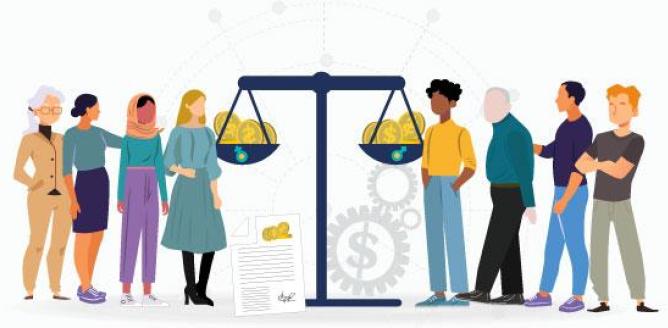“We need to change the way we look at the economy. There are lots of things that we don’t measure well” – Christine Lagarde, Managing Director, IMF
Experts and analysts have long said the 21st century will be the “Asian century” – an era marked by the dominance of the region’s politics and economic powers. But can the region achieve such a big ambition if it fails to tackle gender inequality?
Women comprise half of the population in the Asia-Pacific, but contribute only over a third of the US$26 trillion in combined GDP in the region – the same as the global share, reveals McKinsey Global Institute’s report, “The power of parity: Advancing women’s equality in Asia Pacific”.
Such inequality has a hefty cost: if the gender gap continues, Asia-Pacific could lose US$4.5 trillion of potential GDP growth by 2025. “From an economic perspective, trying to grow without enabling the full potential of women is like fighting with one hand tied behind one’s back,” the report’s authors write.
All countries would benefit from promoting women’s rights and equality. The largest gain would be in China, the biggest economy in Asia-Pacific, with a US$2.6 trillion boost, or 13% increase over business-as-usual GDP. India would gain an 18% increase, worth US$770 billion.
McKinsey researchers estimate 58% of the GDP opportunity in the region would come from raising the female-to-male labour force participation ratio, 25% from women working in higher-productivity sectors, and the remaining 17% from increasing the number of paid hours that women work.
“The power of parity”, released in April, also pays attention to women being underrepresented in leadership positions. In Asia-Pacific, there is only one woman holding a leadership position for every four male counterparts. Female leaders not only face the glass ceiling but also bottlenecks, with the percentage of women declining the further they go along the talent pipeline.
The McKinsey research results go in tandem, and underscore, the important areas TWF has been working on, particularly in our efforts to strengthen, enable and grow the pipeline of woman leaders. Our Mentoring Programme for Women Leaders seeks to increase the number of women in leadership roles and creates supportive networks; through 30% Club Hong Kong and our women on boards initiatives, we are working to create greater gender diversity at the board level; and our HR Advisory Council publish best practice guides for companies to effectively tackle barriers to advancement that female employees commonly face.
On May 28, TWF will be co-hosting a panel discussion with the McKinsey Global Institute and the British Chamber of Commerce in Hong Kong to discuss key findings from McKinsey’s report and actions that companies and governments can take to unlock the full potential of women, advancing their equality and boosting growth. Please join us to discuss this very important topic and sign up via the link below.





















